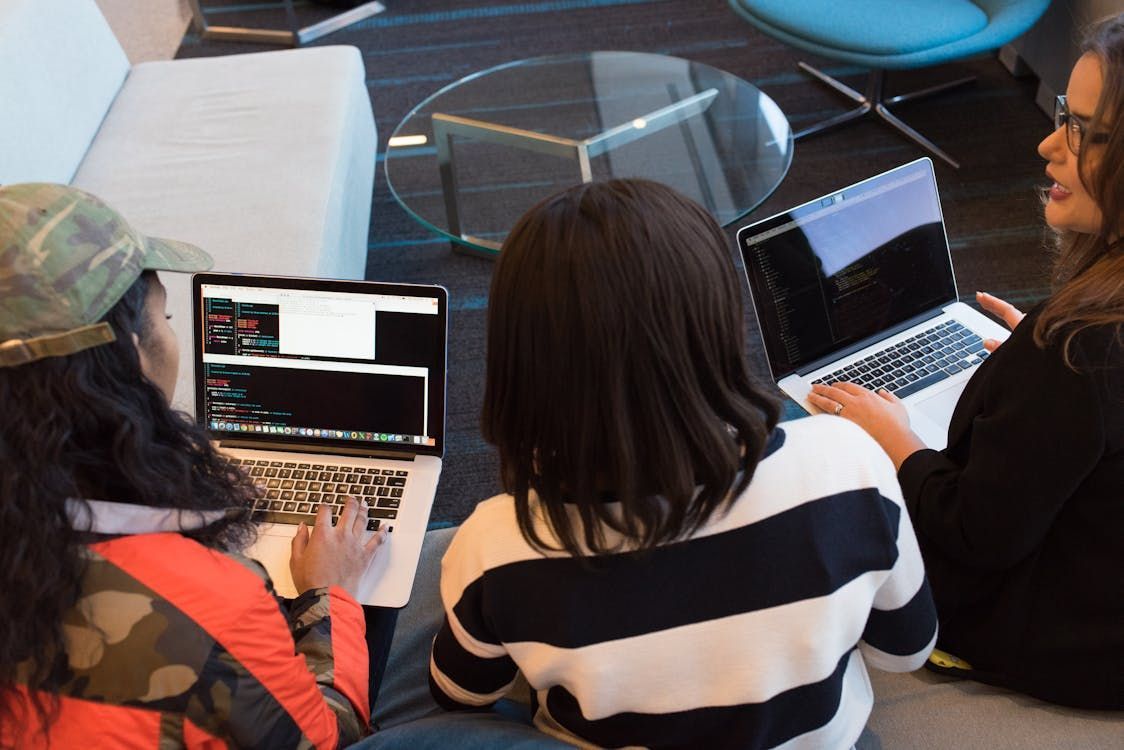Launching a Career in Tech: A Guide for Aspiring Students
Is a career in tech still worth it? With tech changing so quickly, new skills to learn, and rising competition, many students and parents wonder the same thing.
What used to feel like a simple path to a well-paid, stable job now comes with more questions.
From artificial intelligence changing how some jobs work to the wide range of tech roles, it’s tough to know where to start—or if the industry will even look the same when students graduate. Students who have tried coding might question if they’re ready, while parents may ask if tech is still the secure career it once seemed.
If you’re trying to understand what working in tech is like or if investing in coding classes, internships, and training will ultimately pay off, this guide will help. We’ll look at the tech job market today, which roles are on the rise, and how students can get a solid start, even as the industry changes.
Is Tech a Good Career Choice?
A career in tech has a lot to offer, from interesting work to strong job security, which is why it’s such an attractive field for students today.
But it’s normal to have questions:
Is there real stability in a field that changes so quickly? Can it still offer good pay and a clear path forward?
One of the biggest draws of tech is how flexible it is. There isn’t just one kind of job in tech—students can explore areas like software development, cybersecurity, product management, or network engineering.
No matter how much technology evolves, there’s usually a role in tech that fits a wide range of skills and interests. Because technology is now part of almost every industry, tech jobs are in demand not only at tech companies but also in places like healthcare, finance, and education.
When it comes to pay, tech remains one of the best fields for new grads. Starting salaries are high, usually between $80,000 and $120,000, especially in major tech cities like San Francisco, New York, and Seattle. With so many companies needing tech talent, demand continues to grow, making it a steady and reliable career choice for the future.
How to Build Your Foundation for a Career in Tech

Photo by Mikhail Nilov from Pexels
Starting early with the right academic choices can make a big difference for students aiming to build a career in tech. While having a passion for tech is a great start, focusing on specific academic areas in school will help students develop the skills and knowledge they need to succeed.
Relevant Majors and Coursework
Most students aiming for a career in tech choose to major in computer science, as it provides a solid foundation in coding, algorithms, and software design. At Brown University, for instance, computer science is the primary path students take to enter tech, but other majors can be helpful, too.
Degrees in computer engineering and electrical engineering also prepare students for tech roles, especially those related to hardware or systems that combine software and electronics. Courses in data structures, operating systems, and programming are especially helpful for students in any of these fields.
Learning Programming Languages
Knowing which programming languages to focus on can make a difference. It’s a good idea to start with popular languages, like Python, Java, and JavaScript, which are frequently required in many tech roles.
To get a sense of what’s in demand, students can check resources like Stack Overflow’s annual survey, which lists the most commonly used programming languages in the industry. A good foundation in a few widely used languages will not only help in class but also prepare students for internships and interviews.
Supplemental Learning
Although classes offer valuable skills, the tech industry rewards students who go beyond traditional coursework. Many students benefit from joining hackathons or taking on side projects to build their experience.
Online courses and coding bootcamps provide extra resources and let students dig deeper into specific areas or explore new skills. Platforms like GitHub are also excellent for sharing projects and building a portfolio that can be shown to future employers.
How to Develop Real-World Experience in Tech

Photo by Christina Morillo from Pexels
Learning from books and classes is a great start, but hands-on experience is key for students wanting a career in tech. Practical skills and real projects help students see what tech work is like, try different roles, and build confidence.
Internships
Internships are one of the best ways to get real-world experience. It helps students understand different types of companies and work environments. They allow students to use what they’ve learned in class on real projects, giving them a feel for tech jobs.
Internships also look good on a resume because employers want to see hands-on experience. To get ready for these opportunities, students can start by creating projects on their own, taking part in coding challenges, or helping out with tech projects for small organizations to build their skills.
Hackathons
Hackathons are another strong option for gaining experience. These events bring students together to work in teams on a project over 24 to 48 hours. The goal is to "hack" together a quick solution to a problem or idea.
For students, hackathons are a great way to learn how to work in a team, practice new skills, and tackle a project in a short amount of time. Hackathons also allow students to meet and work with mentors from the industry who give advice and feedback on the projects. The experience of building a quick prototype is useful for any tech career.
Personal Projects
Building your own projects outside of school and internships can also make a big difference. These projects can be posted on sites like GitHub, where future employers can see a student’s coding skills, problem-solving, and creativity. Working on a personal project—whether it’s a simple app, a website, or learning a new coding language—helps students improve and shows that they’re serious about tech.
How to Prepare for the Tech Job Market

Photo by fauxels from Pexels
Getting ready for a tech job involves building the right skills, practicing for interviews, and making connections. These steps can help students stand out as they apply for jobs or internships.
Build Technical and Soft Skills
In tech, having good technical skills is essential. Students need to be strong in coding, usually in languages like Python, Java, or JavaScript and should know key topics like data structures and algorithms.
However, tech companies also want soft skills, such as teamwork, communication, and problem-solving. Knowing how to work well with others and explain ideas clearly is just as important as coding.
Interview Preparation
Preparing for tech interviews means getting ready for both technical and behavioral questions. Technical interviews focus on coding skills, with questions about algorithms or tasks where students need to write code on the spot. Behavioral interviews focus more on how candidates work with others, handle challenges, and communicate.
To get comfortable, students can practice with mock interviews. Practicing both types of interviews will make a big difference by helping students feel ready to explain their thinking and stay calm under pressure.
Networking and Alumni Connections
Building connections in tech can make it easier to find job opportunities. One of the best ways to do this is by reaching out to alumni or professionals on LinkedIn. Many schools, like Brown, have alumni who are happy to help students by sharing their experiences and advice.
By connecting with people who already work in tech, students can learn more about different careers, hear about job openings, and get tips on what it’s really like to work in the field. Networking doesn’t have to be formal; it can start with friendly conversations that lead to helpful insights.
Will AI Affect Tech Jobs in the Future?

Photo by ThisIsEngineering from Pexels
The good news is that while AI will change some tasks, it won’t replace engineers. Instead, it will help them be more productive.
AI tools are good at handling repetitive tasks, like writing basic code or making small fixes. This means that engineers can save time on routine work and focus more on solving complex problems, creating new features, and improving products. AI acts like a helpful assistant that takes care of simple tasks so engineers can concentrate on the bigger, more creative aspects of their job.
In the future, engineers who know how to use AI tools effectively will have an edge. By letting AI handle some of the repetitive work, they can get more done and make a bigger impact.
AI won’t replace engineers but will help them work faster and focus on the things that matter most. So, for students entering tech, learning to work with AI tools can be a great way to prepare for the future.
Set Yourself Up for a Future in Tech with Confidence
Choosing a career in tech is a big decision that goes beyond learning to code. It’s about finding the right path, building a strong foundation, and preparing for a job market that’s constantly evolving.
At StrivePath, we know how overwhelming these choices can feel, but you don’t have to make them alone. If you’re looking for personalized advice or have questions about preparing for a career in tech, we’re here to support you every step of the way. Contact us at contact@mystrivepath.com or call us at 925-466-3606.
We’re excited to help you start your tech journey with confidence and set you up for success in a field where you can grow, innovate, and thrive.










